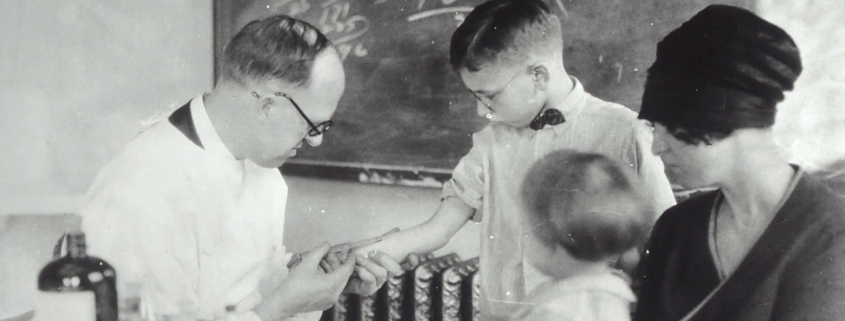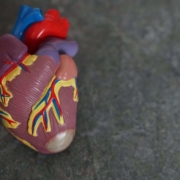“You can’t control the virus, but you can control the host”
Immunity is so important for human health, our bodies fight off toxins, stress and all sorts from the environment we live in.
In this article, we talk about viral and bacterial infections, provide some basic understanding of their differences and characteristics, and then provide some recommendations to get your immune system as good as it can be.
Viruses vs Bacteria – what is the difference?
Many people get confused about what the difference is between viruses and bacteria, and between viral and bacterial infections. They are distinct microorganisms, so to start let’s just describe and define what each of these two is:
Viruses are small infective microorganisms which are capable of growing in the living tissue of animals, plants or bacteria since viruses need living tissue to grow they are parasitic (1,2). Examples of viruses include Chickenpox, Influenza, and Measles.
Bacteria are also small microorganisms, which can be good or bad for you depending on the type of bacteria (4). Examples of bacterial infections include Strep Throat, Urinary Tract Infection (UTI), Tuberculosis and Lyme Disease.
The main difference is that bacteria are living organisms, while viruses are not. So bacteria can function on their own to make their own energy, food and reproduce.
Viruses require a ‘host’ to survive, for example, a human and the humans’ cells to survive, though bacteria can live in the soil or the human body because of their self-sufficient nature. (6).
Bacteria are also much larger, with the smallest bacteria being ~0.0004 of a millimetre, compared to viruses which can be as small as ~0.0002 of a millimetre.
In perspective, this means that viruses are roughly half the size of bacteria, and that to see a virus you would have to use an electron microscope (6).
How Do They Work?
Viruses:
When you drop a dye or paint into the water, it hits the surface of the liquid and quickly spreads throughout. By analogy, a virus is quite similar, once it makes contact with the body and can get access it can spread quickly and widely.
Viruses work by:
plantation and contact at a place on the human body (termed portal of entry)
virus replication
spread and multiplication (3)
Viruses will reach you through ‘mechanical’ action, in other words, a virus is a moving microorganism which can get into your body via the air, food, animal bites and contamination of objects (e.g door handles).
A number of things will affect how bad it is, firstly there are many viruses which exist and they all have different ‘virulence’ (how much the virus affects the host), but also how well it multiplies and where it resides in the body.
Viruses reach and stick to cells of your body, which ‘host’ the virus. The virus will use the host cell to make its own genetic and structural elements, essentially the virus steals the ability of the host cell to function normally and can cause cell damage (3).
Viruses will multiply on a vast scale, originating at the host cells and spreading to other cells of the body.
Bacteria:
A bacterial infection is like throwing 100 darts against a dartboard, most of them will just bounce off onto the floor, but there will be a couple which sticks. The darts that stick are basically the nasty bacteria causing bacterial infection, while the majority of bacteria don’t score…just like the majority of the darts which bounced off.
Bacteria are single-cell microorganisms, and again there are a plethora of bacteria, most of which will not affect you negatively, and in fact, many bacteria exist in your gut which is highly beneficial to your health (4)!
We are in fact exposed to lots of bacteria every day, most of it is not ‘pathogenic’ (pathogenic meaning disease-causing) and our bodies are able to effectively defend against them. The body uses skin flora, mucosal surfaces and phagocytic cells (cells which engulf foreign substances) to defend against bacteria by preventing them from spreading into the body (5).
In this chapter on bacterial infection the author quotes “susceptibility to bacterial infections depends on the physiologic and immunologic condition of the host and on the virulence of the bacteria”, this summarises nicely that most bacteria are benign, however, depending on the circumstances of the body’s immune system and the type of bacteria infection could occur (5).
Bacteria are known to be more ‘opportunistic’ and tend to cause disease and illness dependent on numerous factors such as the body’s immune system, the type of bacteria, the location of the bacteria on the body and so forth (6). Bacterial infection will typically occur when the body has weakened defences or when the bacteria have the right chance to cause illness.
What Can You Do?
We all have heard the saying “control what you can control”, and this rings true for immunity, we can only do things to maximise our immunity, however, we cannot control what is in the air around us or the objects we touch which could be contaminated.
Sleep:
Getting your sleeping habits in check will have a great effect on your overall health and immunity. Research has found that sleep helps with signals to initiate immune responses and defences (7), so start by working on sleeping and waking at consistent times, cutting out electronic devices in the hours before bed and sleeping in a totally dark room.
Hygiene:
Of course, personal hygiene is key, because the skin flora catches some of these pathogens and literally acts like a barrier, so we need to wash this barrier and wash our skin to ensure the pathogens do not pass further.
Food, Nutrients and Supplementation:
The main things to consider with food and supplementation in regard to immunity, are that you do not want to be deficient in any particular nutrient and you want to provide antiviral/antioxidant support. These areas will give you the best support for strong immunity.
So the following should be considered:
Vitamin D + K
Real Food – protein and fresh produce, ginger, garlic, leafy green vegetables.
Eating fresh and ideally organic produce will also help you, fresh food will have fewer bacteria and organic produce means there will be fewer chemicals, both of which are unnecessary for your body to deal with.
Make time for yourself:
Removing undue stress from your life will also remove stress from your body’s systems. Make time to do the things you enjoy, find some time to relax, schedule it into your week and this can again be of benefit to your immunity by lessening general life stresses.
We can only do so much to maximise our immunity and prevent illness, but the areas we mentioned in this article can indeed improve our immune system to give us the best possible chance of fighting off illness. This is “controlling what you can control”, the lifestyle recommendations above are in everyone’s control and will give their immune systems’ great support.
Anyone with highly specific immune conditions should consult their doctor or specialist to confirm the efficacy of any lifestyle changes for them.
Consultations
We’re always here to help. If you have any questions or would like advice about supplements, nutrition, or training, please book in for a consultation.
Disclaimer
Always speak with your physician or other healthcare professionals before making any nutritional & lifestyle changes or before taking any nutritional supplement. For more information, please view our terms & conditions.
Further reading:


 Liposomal Vitamin C
Liposomal Vitamin C










